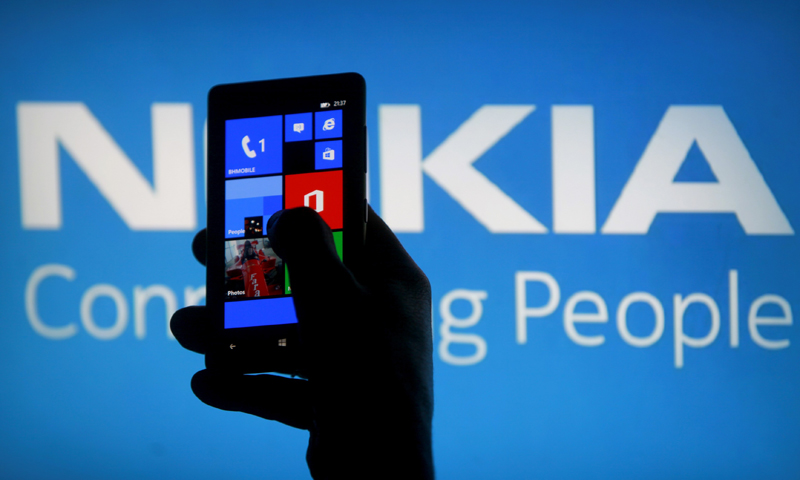In recent years, mobile industry giants Nokia and BlackBerry have fallen on hard times. Last month, Nokia was sold to Microsoft. BlackBerry too, is now exploring ‘strategic alternatives’. At the time of writing this article, speculation was rampant about Fairfax Financial Holdings acquiring the company for 4.7 billion dollars.
Nokia’s market share in 2010 was 40 per cent; it is now at a mere 5 per cent in 2013. The company can, however, be commended for having some foresight as it took the bold step of partnering with Microsoft in February 2011. This partnership resulted in a new line of products with a fresher look and was coupled with the Windows Phone OS.
A good question being asked is how the Nokia sale will affect its software development?
Microsoft was already working with Nokia and had inherited its employees. Microsoft also has a strong history of developing software and tools for the mobile market, and has successively improved their OS builds. With regards to app development, the Windows Phone OS offers substantial ease of developments for apps and is even thriving in certain markets such as Latin America. Microsoft stocks fell by 5 per cent after the acquisition of Nokia. On the other hand, stocks of Nokia rose by a whopping 40 per cent. There are high chances of investor’s confidence returning to the brand.
Another industry giant that has now been reduced to a shadow of its former self is BlackBerry. It now only controls a paltry 5 per cent of market share. Unlike Nokia, they have a closed in-house development environment mirroring that of Apple. BlackBerry has long suffered from desertions in its upper ranks, leaving the company without a clear path to pursue.
BlackBerry had it right at the beginning with a niche-oriented approach, but the company failed to innovate when its competitors came out with alternatives in its niche market segment and hence started to lag behind.
Nokia has had a reputation for being a poor man’s phone, while it tried to cater to high-end market segments, those efforts were met with little success. Nokia’s USP (unique selling point) has always been its durable hardware, an unbeatable distribution network and its user friendly software. It also benefited from an active re-sale market, especially in third world countries. The company failed to realise a very important aspect though, the users were getting smart along with their phones. Feature phones market segment was once led by Nokia, but as the segment has shrunk, and will entirely disappear in the near future, it has little-to-no appeal in the development world.
Microsoft, by acquiring that wing of the Nokia business may find it feasible, with an upgraded OS and budget feature phones, before the segment is completely phased out.
BlackBerry, on the other hand were the market pioneers with their wireless e-mail, along with unique services such as the Enterprise Server and BBM. This niche approach of the company, which gravitated towards corporate professionals helped put them on the map and gain a significant market share overall.
Nokia and BlackBerry unfortunately set unrealistic goals for ground-breaking software development. They met stiff competition from the ever evolving Android OS and Apple’s user friendly approach to development.
Android was a juggernaut in the making, with its update-as-you-please approach, it made a sizeable dent in the industry. With Samsung starting to use the Android OS in its new line of phones, it was only a matter of time before Nokia and BlackBerry were left behind in the race. A plethora of apps on the Android OS further strengthened its position as the most user friendly and adaptive OS on the market.
Android struck to an open source attitude, something that the developers could relate to and expand upon. It encouraged app developers to develop apps that they themselves would use as an average user, rather than a limited number of apps that offered limited functionality that were pushed out from BlackBerry and Nokia. iOS on the other hand, realised that vanity comes with a price, so ‘highly customisable’ was not a goal per se, it was all about giving the users a smooth and error free experience. Android users were willing to compromise, but Apple users were not.
These two very separate and unique business models encouraged app development. Apple leads the race in the number of apps with a huge selection of 900,000 apps. Android is a close second with around 860,000 apps. BlackBerry and Nokia have 235,000 and 116,000 apps respectively.
More apps being developed have led to a bigger market, which in turn have generated higher consumer interest. Consumer interest has led to an increase in app and phone sales. Start-ups are pouring in apps, and are rewarded with a greater exposure and revenue generation. Android dominates overall mobile phone sales and has the highest number of app downloads. Apple has a higher revenue, hence market size is a factor but there are a lot of other variables at play as well.
A debate between quality and quantity also exists. With BlackBerry’s ’50,000 app scandal’, which were mostly borderline apps used for promotions and developed by a single developer, it seemed as if BlackBerry App World was misusing its free app submission policy. Windows Phone was once a credible rival to the Android OS. It was Apple that took away a greater share of BlackBerry’s Enterprise Server niche market. BlackBerry still holds onto it dearly, but not much innovation is expected.
The industry rivals have been switched, and now it’s a race between Apple and Android. Nokia and BlackBerry are now in a battle for survival, with the first two spots already taken. For these two competitors now, it’s not about whom will lead the industry, but rather who will attain the third position and who will get wrapped up.
















































Dear visitor, the comments section is undergoing an overhaul and will return soon.